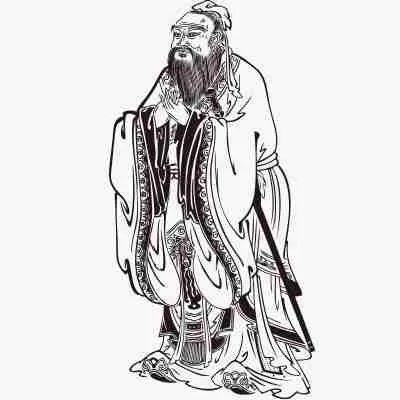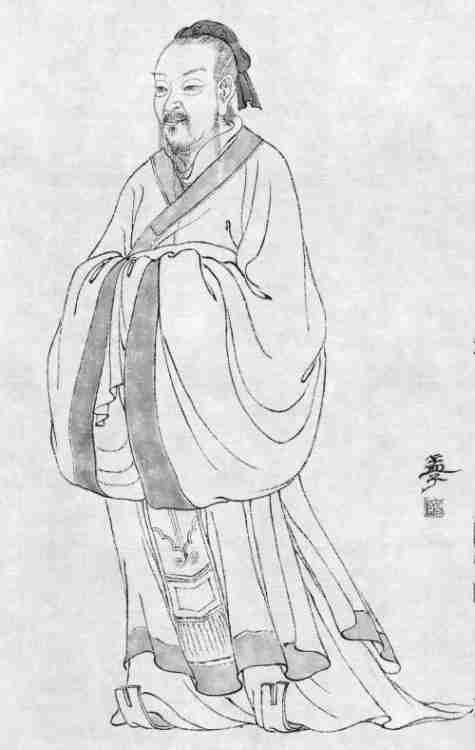Ever wondered where the qualities of generosity, truthfulness, diligence, respect, kindness, and industriousness came to be or who taught these qualities? Well, these qualities are associated with Confucianism. In this article, we share some of the things you need to know about Confucianism in ancient China, who came up with the idea, why Confucianism is an important aspect in Chinese culture.
Who Was Confucius And When Was He Born?
Confucius, also known as Master Kong, lived in China between 551 and 479BC. He came up with the idea of Confucianism.
Master Kong got the Latin name Confucius from Jesuit Missionaries visiting China back then. Interestingly though, all the fundamental guiding principles of Confucianism have been around since before the death of Confucius, specifically in the time of the Zhou Dynasty. Confucius, however, played a critical role in making the ideas around Confucianism well known around China and the rest of the world through his teachings and work with the government.
But who really was Confucius, and where was he born?

Confucius, better known as the Kongzi, Pinyin Romanization Kongfuzi, K’ung-tzu, Wade-Giles K’ung-fu-Tzu, and originally named Kongqiu, which is the other name for Zhongni, was born in 551 in the state of Lu, in Qufu. He died in 479BCE.
Confucius is regarded as the world’s most famous philosopher, teacher, and political theorist, and his ideas are believed to have had the most profound amount of influence on the Chinese civilizations, as well as the civilizations of most of the other East Asian countries.
Born towards the end of the era of Chinese history between the periods of Autumn and Spring, he was raised in Lu, which is a regional state in eastern China, and now known as southwestern and central Shandong.
Confucius belongs to the family of Kongs, all from the state of Song, and also Aristocrats from a family that produced many of the eminent counselors that made up the Song Ruling class. However, by the middle of the 7th century, the family had lost its political ground along with most of their wealth, and some of the kings, including Confucius’ great-grandfather, were forced to relocate to the state of Lu.
Confucius’ dad, Shu-Liang He died soon after Confucius was born. Though considered lowly and poor and had to fend for his family doing menial work, his employment in the Jisun clan led to his rise from the keeper of the clan’s granaries to being appointed the district officer in the clan’s feudal domain, a post that led to his later appointment as the minister of crime before he took on the position of the prime minister later on,
Later in his adult life, Confucius resigned from his posts, self-exiling himself for about 14 years. This was a decision that was the result of his protracted struggles with families that acted in a rather transgressive and indiscretions that would result in the wrestling of power from the deserving rulers. While exiled, he spent time looking for rulers who thought in the same way as he did and were, as a result, guided by his visions towards a more virtuous government.
Although Confucius had the opportunity to work with the Zhou Dynasty when it came into power later in the mid-6th century, Confucius wasn’t ready to align with the then leadership as he believed that beyond integrity, leaders and good men in politics needed to equip themselves with the knowledge and right set of skills to serve, to be able to serve well, and they’d also have to prove their worth through moral influence.
Who Is Mencius And Why Is He Important?

The other big and important name in China is the name Mencius, a thinker and philosopher who had a great influence in Chinese societies.
Mencius, which is a Latin name, is the name that the Chinese Mengzi used. Mengzi means Pinyin in Chinese, but he was also known as Meng-Tzu though his original name was Wales Giles or Meng K’o.
Mencius was born in 371 in the ancient China state of Zou, and he died in the year 289 BCE. The reason why Mencius remains an important figure in Chinese culture has to do with the fact that he developed an orthodox version of Confucianism, something that earned him the title of the Second Sage.
The primary things that stood out from his tenets include his emphasis on what the obligations of rulers were and that the rulers were required to provide for the common people that they served. His sayings and doings are recorded in the book Mencius. The book also contains several statements that reiterate his beliefs about the goodness of human nature – this was a topic that was discussed rather warmly by the Confucianists, and it remains a subject of discussion to date.
When Did Confucianism Start In China?
Confucianism is regarded as the Chinese ethical system. This school of thought stresses the importance of leading life under correct behavior and obedience and loyalty to the hierarchy.
This belief system was devised by the Chinese Scholar K’ung Fu-Tzu, whose name was Latinized to Confucius in the 6th century BCE in China. The systemized elements of Confucianism are part of the ancient Chinese philosophies, and the elements of this belief system would, later on, be compiled by Confucius’ disciples into two of the most authoritative books on Confucianism – these books are the Five Classics and the Four Books.
Today, Confucianism is regarded as a secular-humanist system of belief, but others regard it as a religion, while the rest consider it a social code of sorts.
When Was Confucianism Adopted In China?
Confucianism is a philosophy that’s based on the belief that human beings are inherently good and that the human race engages in immoral behavior only in the absence of strong moral standards, meaning that the adherence to a specific set of moral/ ethical codes and rituals would encourage good human behavior while enabling people to live more productive and tranquil and peaceful lives. Cumulatively, these would eventually translate into an ethical, strong, and more prosperous state.
Thanks to his teachings, Confucius is regarded as the most influential philosopher in the history of China because his precepts, views, and his concepts have, for at least, 2,000 years, informed Chinese culture.
So, when did China adopt Confucianism?
Though Confucius claims to have written nothing about his beliefs and that his books were written by his disciples who led to the popularization of his school of thought, Confucianism philosophies are known as the Five Classics were reinforced into society by Mencius, who attributed the Five Classics to Confucius. The rest of the Confucianism thoughts were established by Mencius in the book Five Books in the mid-20th century. The works and books of Mencius and Confucius have, however, been foundational texts in most of Chinese Culture from the time the Han Dynasty ruled China – between 202 BCE and 220 CE. Therefore, it’s the Han Dynasty that made Confucianism state policy.
Why Was Confucius Important To China?
Confucius was important to China, not just because of the Four Books and the Five Classics, but also because of the Confucianism school of thought, which laid focus on the goodness of human nature.
Essentially, Confucianism largely focused on the use of education as an effective way for individuals and rulers to attain status and worth in society. His teachings were, as a result, adopted by the Han Emperor called Wu Ti as the official philosophical school that the nation would run on.
Following the emperor’s approval of this way of life, the Chinese system that was made of non-hereditary mandarins along with all other high-ranking officials of the government would then be appointed into their various positions based on their performance on the rigid imperial examination system. This system was inspired by Confucianism. And by the 1st century AD, Confucius was an object of veneration throughout China – Confucianism then spread to Vietnam and neighboring nations over time.
The Confucian belief that rituals and rites were expressive and encompassing of proper human conduct and that these things applied to all the spheres of life for the human race.
How Did Confucianism Influence the Chinese Government?
Confucianism established that the most important qualities that were to be adopted by human beings were industriousness, diligence, respect, generosity, truthfulness, and kindness. These were also the expected qualities of the emperors, as well as all individuals who sought government jobs. These qualities, therefore, became the measure through which the leaders of the government would be selected.
Besides these qualities, Confucianism influenced the Chinese government by establishing an examination system that not only measured how much people knew about Confucianism but also determined how good of a leader an individual would be. This applied to everyone, including the emperor. The examination system is also the reason why Emperor Wudi would set up schools where the applicants would study Confucianism.
Confucianism further influenced the Chinese government by encouraging assimilation. In other words, assimilation refers to the process that would make the empire unified. Confucianism is what allowed the Chinese government to have the captured people be part of the Chinese culture. It’s why farmers were sent out to the conquered areas then encouraged to intermarry with the people that lived in those parts of China.
And as mentioned above, Confucianism led to the government’s establishment of schools that taught Confucianism.
Finally, the Confucianism belief system received the highest possible form of social participation, which is what made it such a big deal to the government and Chinese culture today.